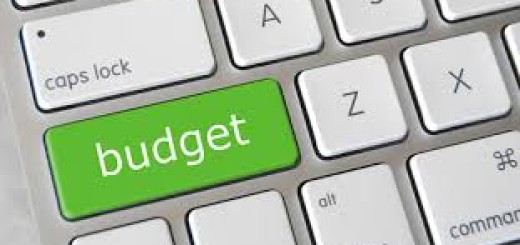Why you should NOT use credit as an emergency Fund
 Let’s start this discussion by defining “Emergency“. Wikipedia describes an Emergency as a situation that poses an immediate risk to health, life, property or environment. My definition might be a tad different. An Emergency is something that you DO NOT anticipate. An Expense for something you DO anticipate is called an “Occasional Expense” and I feel there are two distinct strategies for two distinct needs.
Let’s start this discussion by defining “Emergency“. Wikipedia describes an Emergency as a situation that poses an immediate risk to health, life, property or environment. My definition might be a tad different. An Emergency is something that you DO NOT anticipate. An Expense for something you DO anticipate is called an “Occasional Expense” and I feel there are two distinct strategies for two distinct needs.
Where we often fail is by skewing our definition of emergency to include routine non-monthly expenses such as car maintenance, home maintenance, costs of child-rearing, etc. The second place we fall short is by NOT planning for these routine expenses in other ways, and giving in to credit’s false sense of security. Believing that it will be there to help you weather the financial storm so-to-speak.
Let me share a quick story with you to illustrate my point. Bob (not his real name) came in to see me for advice. When we talked about what was causing his financial problems and his high credit card balances, he cited his car as being the main culprit. “It always needed repairs” he said. “Every time I turn around, I need to take it to the shop”. I asked him how much he spent a year on repairs. He had no idea. I asked him to get a printout from the repair shop and bring it with him the next time he was in. In a follow up appointment he told me he spent about $3,000.00 last year. His car was more than 10 years old. That’s not unusual for a car that age. We did the math, and that equated to $250.00 per month. We reviewed his income and expenses and it seemed that if he planned accordingly, he could actually put that amount of money away each month (providing he did not have a repair bill that month) and start to gain control of the expense. Or, he could go out and buy a newer car. So we did the math on that option, and figured it would cost him an additional $150-$200 per month to go that route given the addition of a car payment and the extra cost in insurance and basic maintenance of a new car (tires, oil changes etc.).
This is the heart of what I see everyday and what I personally struggled with as I attempted to set up a spending plan for our household. By not planning for things like car maintenance, we are left with a roller coaster plan. We allocate our money to all of other expenses, spend the rest, and then feel the setback when we have a large ‘anticipated’ expense. I say ‘anticipated’ because if you have a vehicle, you WILL have vehicle maintenance. If you have a house, you WILL have home maintenance, if you have a Child, or Pet, you will have…well, you get the picture! So why not figure out what they are costing you and devise a strategy to plan for them?
Instead, we tend to (as Robert Fritz says) follow the path of least resistance and fall into a pattern of reliance on credit, using that as a budgeting strategy. A costly budgeting strategy I might add. Did I mention there is a thin line between financial strategy and financial disaster? 🙂 Sometimes this strategy works, other times is backfires. If you are able to pay off the balance before your payment is due, and interest is charged, congratulations! You have employed a financial strategy! However, if you take several months to pay off the expenses and/or add it to a balance on your credit card, you are now on the side of financial disaster – paying interest for this strategy and increasing the cost of the ’emergency’.
Need some guidance to start you on the path of saving for Occasional Expenses? Here are some tips to get you started:
- Make a list of your occasional expenses (gifts, back-to-school costs, vehicle repairs, vet bills, etc.), estimate what you ‘think’ they cost you for the year or pull together what you can find to get a more accurate number.
- Calculate what you nee to set aside each month
- Add this amount to your spending plan
- Set aside this amount of money each pay or each month, preferably in another account (or envelope, or jar, or give it to a friend, whatever works). Better yet, set up an automatic deduction from your paycheck if you can (csb or direct deposit into a separate account).
- Keep track of how much is for each anticipated expense and how much you are spending as you go along. This will tell you if you need to adjust the amount you set aside.
Can’t set aside the full amount just yet? Don’t worry, start with what you can do. Even a little bit will help the setback not be so big. Set a goal to work towards setting aside more as you fine-tune your spending plan.
Now, if your sewer backs up or you find out you have a debilitating disease and need to remodel the house (or something equally as un-anticipated and costly) then by all means, consider using your available credit to help you cope with such a large expenses. But know the difference between the two and plan accordingly!





